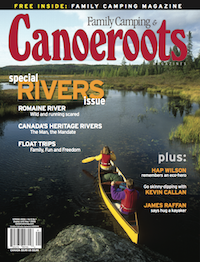There are few things I enjoy more than a cookout over an open fire or barbecue. It’s a great way to relax and have a good time, but if it isn’t done right it can lead to serious illness. Food poisoning is one of the most common and widespread ailments in human history, not to mention a surefire way to ruin a camping weekend or picnic.
According to the United States Department of Agriculture, food-related illnesses increase 150 per cent during the summer months.
Many people are unaware of the symptoms of food poisoning and never consider their storage or preparation of foods or drinks to be the cause of an illness.
The symptoms of food poisoning can vary depending on the type of bacteria causing the illness and the amount of food eaten. They include severe diarrhea, nausea, chills, fever, gas pains and vomiting—pretty similar to the flu or heat stroke. The incubation period of food poisoning can range from hours to weeks.
Most food-related illnesses can be easily prevented. Foods should be kept in a cooler in sealed containers—plastic tubs with snap-on lids work fine— and not wrapped in plastic wrap or aluminum foil. As the temperature in your cooler goes up, frozen foods will start to thaw and possibly leak. You don’t want your sticky buns sponging up the blood from your steak. When packing your food learn to live by the motto: Separate, don’t contaminate.
KEEPING THINGS CLEAN
Another big concern is keeping everything clean. Wash your hands, utensils and any food preparation surfaces before cooking and after handling any raw foods. Have a pot of warm, soapy water on hand for quick washes during meal prep. Good hygiene while cooking can greatly reduce the risk of food poisoning.
Every campground chef has theories about what makes the perfect burger or steak, but no matter the seasonings or goofy aprons, the rule of thumb is to keep them cold and cook them hot.
When using a charcoal grill ensure that the charcoal is glowing red and has a gray powder on the surface—this is a good idea when cooking over a campfire as well. Electric grills or gas grills should be cleaned or pre-heated to kill any bacteria on the cooking surface.
Some of you may laugh, but I use a meat thermometer to ensure my meats are cooked properly to kill all bacteria. Cook steak to 150 degrees, hamburger to 160 degrees, chicken to 180 degrees and fresh fish until you are certain it is cooked thoroughly. Hot dogs sold in stores are precooked but they should still be heated until they are piping hot throughout. Not all spots on your grill are as hot as others so move meat around so it cooks evenly.
Most cases of food poisoning from outdoor cooking can be prevented by proper storage, good hygiene and proper cooking. Food poisoning is a huge downer on any trip.
If you are staring into your icebox wondering whether you should eat it or not, I say: If in doubt, throw it out.



